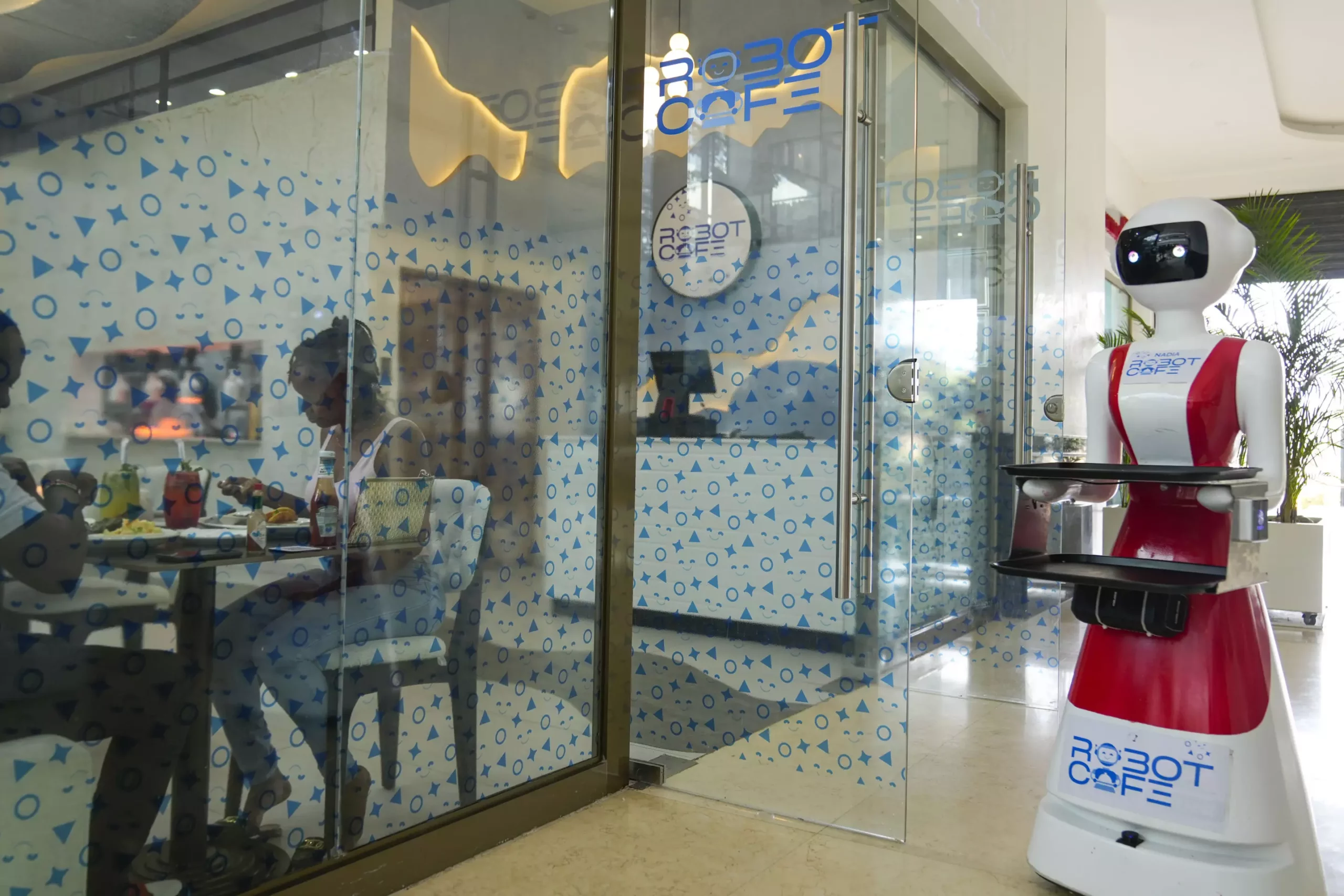In Nairobi, Kenya, a new trend is emerging in the dining industry – the introduction of robots to serve food in cafes. The Robot Cafe, believed to be the first of its kind in Nairobi and East Africa, has gained popularity among customers, both young and old. With the vibrant tech industry in Nairobi, the cafe has positioned itself as a tech hub in the region, earning the nickname “The Silicone Savanna.”
The preprogrammed robots at the Robot Cafe, named Claire, R24, and Nadia, glide among human waiters, serving food to mesmerized customers. These robots were acquired for entertainment purposes, as cafe owner Mohammed Abbas was inspired by his experiences with robot service in Asian and European countries. While the robots can greet customers with phrases like “Your order is ready, Welcome,” they are not designed for full conversations. Customers must press an exit button after picking up their food from the robot tray.
Despite the introduction of robots in the cafe, human waiters still play a crucial role in the operations. They take orders from customers who prefer not to use the online ordering option, place the food on the robot tray when it’s ready, and deliver drinks in person. According to the cafe’s manager, John Kariuki, the robots are not a replacement for human waiters, as they are unable to offer all the services that a human touch can provide.
The introduction of robots in the hospitality industry is predicted to disrupt the future workforce globally, including in Africa, where there is a youthful population. However, the high cost of acquiring robots makes it impractical for some businesses to fully rely on robotic service. Edith Ojwang, a hospitality industry expert, emphasizes that there is room for both robotic and human service to coexist in the industry. Some customers may prefer the efficiency of robotic service, while others value the personal touch and warmth that human service provides.
The rise of robot cafes in Nairobi represents a significant shift in the dining industry. While the introduction of robots may offer entertainment value and efficiency, human waiters still play a vital role in providing personalized service to customers. As technology continues to advance, finding a balance between robotic and human service in the hospitality industry will be crucial to meeting the diverse needs of customers. Robots may be the future, but the human touch will always hold a special place in the dining experience.


Leave a Reply